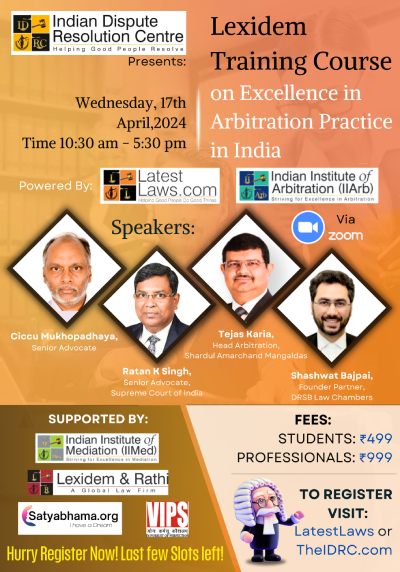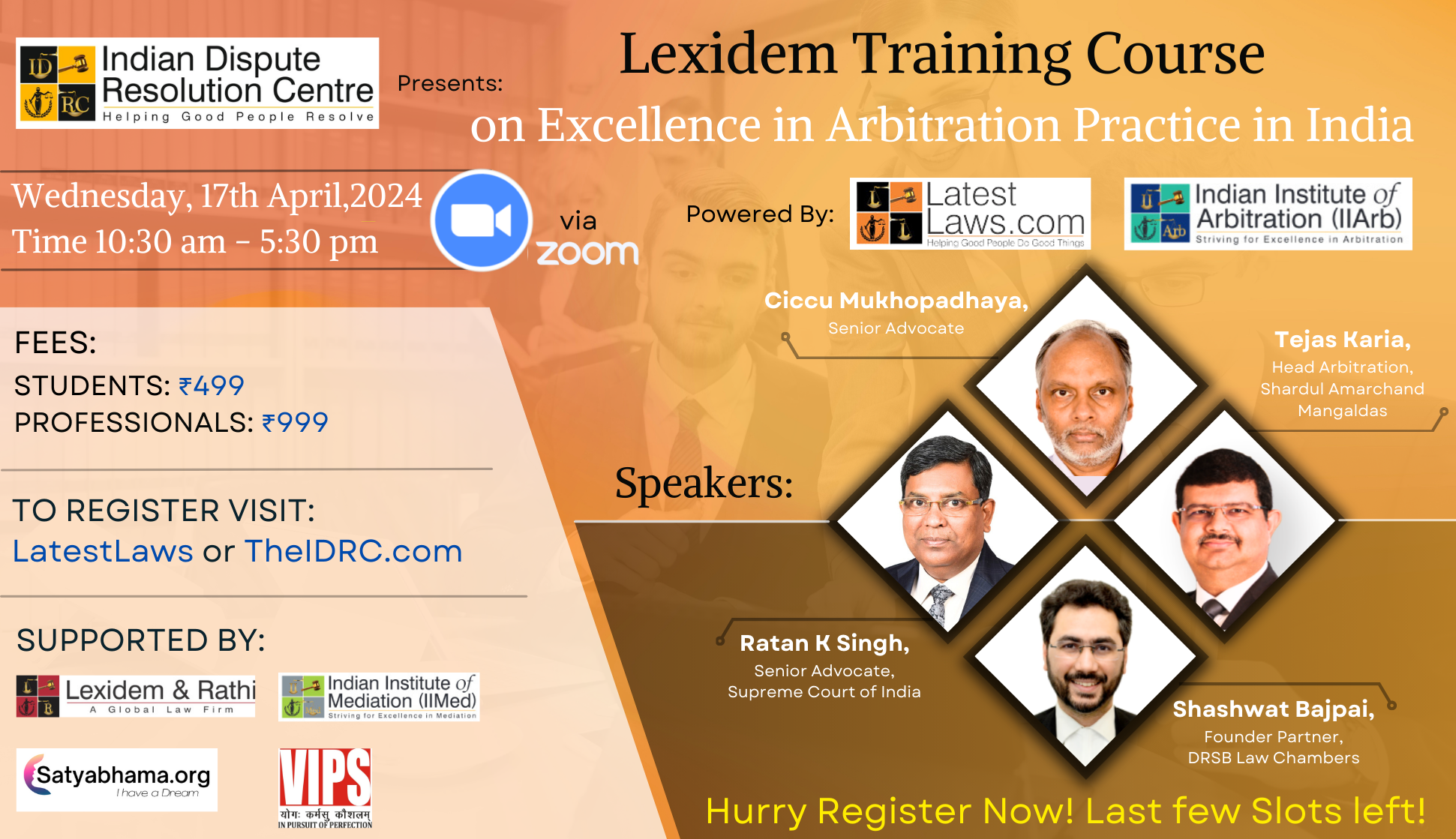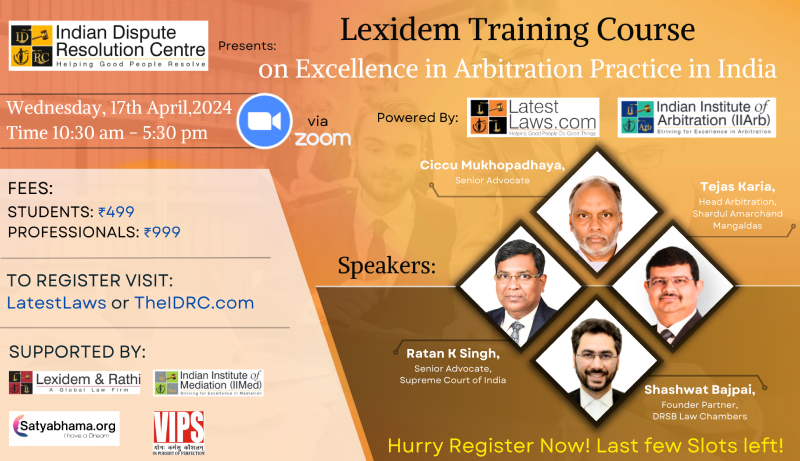June 10,2018:
The Author, Saransh Agarwal, is a student of Damodaram Sanjivayya National Law University, Visakhapatnam. He is currently interning with LatestLaws.com
Q1. Who are the persons who belong to scheduled castes and scheduled tribes?
Ans. Article 341 and 342 empowers the President of India to draw up a list of these castes and tribes.
Q2. What does this act do?
Ans. The preamble of the act clearly states that act seeks to prevent the commission of offences of atrocities against the members of the scheduled castes and the scheduled tribes, to provide for special courts for the trial of such offences and for the relief and rehabilitation of the victims of such offences and for matters connected therewith or incidental thereto.
Q3. What functions does this law perform?
Ans. This law performs three main functions:
- It penalises crimes against people belonging to scheduled castes and tribes.
- It gives special protections and rights to victims of atrocities.
- It sets up fastrack courts for finalisation of cases.
Q4. Which all crimes are punishable under this law?
Ans. Crimes punishable are:
- enhanced punishment for crimes under IPC.
- atrocities
Q5. What do you mean by atrocities?
Ans. Atrocities as defined in section 2(1)a of the act means crimes punishable under section 3 of the act which include:
- Forces a member of a scheduled caste or a scheduled tribe to drink or eat any inedible or obnoxious substance;
- Acts with intent to cause injury, insult or annoyance to the SC’s and ST’s
- Forcibly removes clothes from the person of a member of a scheduled caste or a scheduled tribe or parades him naked or with painted face or body or commits any similar act which is derogatory to human dignity
- Wrongfully occupies or cultivates any land of a member of a scheduled caste or a scheduled tribe or gets the land allotted to him transferred;
- Compels or entices a member of a scheduled caste or a scheduled tribe to do 'begar'
- Tries to manipulate his vote
- Institutes false, malicious or vexatious suit or criminal or other legal proceedings or gives any false or frivolous information to any public servant against a member of a scheduled caste or a scheduled tribe
- Assaults or Being in a position uses that position to exploit her sexually to which she would not have otherwise agreed in case of a woman belonging to a scheduled caste or a scheduled tribe
- It also includes activities like tonsuring of head, moustache, garlanding with chappals, abusing in caste name contamination of water, force him to leave the house etc. or similar acts which are derogatory to the dignity of Dalits and Adivasis.
Q6. What all changes were introduced by the supreme court in the act recently?
Ans. The Supreme Court, introduced anticipatory bail provision in the Scheduled Castes and Scheduled Tribes (Prevention of Atrocities) Act which is against the Section 18 of the Act.
Supreme court showing its concern over the arbitrary provision said that “Unless exclusion of anticipatory bail is limited to genuine cases and inapplicable to cases where there is no prima facie case was made out, there will be no protection available to innocent citizens,” stated a bench comprising Justice A.K. Goel and Justice U.U. Lalit in the judgment of Dr Subhash Kashinath Mahajan vs the state of Maharashtra case.
Q7. What are the special duties of a police officer under this act?
Ans. The police officer is required to reduce to writing any information related to crime under this law and give the person a copy of that as mandated under rule 5 of Scheduled Castes and the Scheduled Tribes (Prevention of Atrocities) Act, 1995 rules. Any person aggrieved by a refusal on the part of an officer in-charge of a police station to record the information may send the substance of such information, in writing and by post, to the Superintendent of Police concerned who after investigation either by himself or by a police officer not below the rank of Deputy Superintendent of Police, shall make an order in writing to the officer in-charge of the concerned police station to enter the substance of that information to be entered in the book to be maintained by the police station.
Q8. How is relief provided to victims?
Ans. District Magistrate or the Sub-Divisional Magistrate or any other executive Magistrate or any police officer not below the rank of Deputy Superintendent of Police are required to do the spot inspection under rule 6 of Scheduled Castes and the Scheduled Tribes (Prevention of Atrocities) rules, 1995 whenever he receives an information from any person or upon his own knowledge that an atrocity has been committed on the members of the Scheduled Castes or the Scheduled Tribes within his jurisdiction, he shall immediately himself visit the place of occurrence. Assess the extent of atrocity, loss of life, loss and damage to the property and submit a report which contains a list of victims, their family members and dependents entitled for relief, prepare a detailed report of the extent of atrocity loss and damage to the property of the victims, order for intensive police patrolling in the area, take effective and necessary steps to provide protection to the witnesses and other sympathisers of the victims and provide immediate relief to the victims and forthwith to the State Government.
Q9. How is speedier inquiry ensured?
Ans. Proper rules are framed to ensure speedier inquiry of cases. Under rule 7 of Scheduled Castes and the Scheduled Tribes (Prevention of Atrocities) Act, 1995 rules the inquiry must be completed within 30 days by an officer not below the rank of DSP and he shall send the report to SP who in turn will forward the report to DGP. The Home Secretary and the Social Welfare Secretary to the State Government, Director of Prosecution the officer in-charge of Prosecution and the Director General of Police shall review by the end of every quarter the position of all investigations done by the investigating officer.
Q10. What are the precautionary and preventive steps taken up by the government to protect SC’s and ST’s against atrocities?
Ans. Scheduled Castes and the Scheduled Tribes (Prevention of Atrocities) Act, 1995 rules provide the required procedure and appropriate authorities which are required to look into the matter.
Under the rule 3 of Scheduled Castes and the Scheduled Tribes (Prevention of Atrocities) Act, 1995 rules,
- the state government shall identify the areas where it has reason to believe that atrocity may take place
- order the District Magistrate and Superintendent of Police or any other officer to visit the identified area and review the law and order situation
- empowered to seize the arms from such an area where it has reason to believe that atrocity may take place or there is an apprehension of reoccurrence of an offence under the Act with a view to ensure the safety of person and property, if deem necessary, provide arms licences to the members of the Scheduled Castes and the Scheduled Tribes
- to form various committees for assisting the Government in implementation of the provisions of the Act and vigilance committees to maintain and review law and order situation.
- deploy special police force in the identified area
- by the end of every quarter, review the law and order situation, functioning of different committees, performance of Special Public Prosecutors, Investigating Officers and other Officers responsible for implementing the provisions of the Act and the cases registered under the Act.
The State Government shall set up a Scheduled Castes and the Scheduled Tribes Protection Cell at the State head quarter under the charge of Director General of Police/Inspector General of Police under the rule 8. This cell shall be responsible for conducting survey of the identified area, making recommendation regarding deployment of special forces to the centre, investing reasons behind the crime, making investigations about the irregularities by the public servant and informing the nodal officer and special officer about the law and order situation in the identified area
Q11. How is prosecution and reports supervised?
Ans. Prosecution and reports are governed and regulated appropriately under the Rule 5 of the Scheduled Castes and the Scheduled Tribes (Prevention of Atrocities) Act, 1989. Under this rule The State Government on the recommendation of the District Magistrate shall prepare for each District a panel of such number of eminent senior advocates who has been in practice for not less than seven years, as it may deem necessary for conducting cases in the Special Courts. Similarly, in consultation with the Director Prosecution/incharge of the prosecution, a panel of such number of Public Prosecutors as it may deem necessary for conducting cases in the Special Courts, shall also be specified. Both these panels shall be notified in the Official Gazette of the State and shall remain in force for a period of three years.
The District Magistrate and the Director of Prosecution/in-charge of the prosecution shall review at least twice in a calendar year, in the month of January and July, the performance of Special Public Prosecutors so specified or appointed and submit a report to the State Government If the State believes that a Special Public Prosecutor so appointed or specified has not conducted the case to the best of his ability and with due care and caution, his name may be, for reasons to be recorded in writing, denotified.
Also the District Magistrate and the officer-in-charge of the prosecution shall review the position of cases registered under the Act and submit a monthly report on or before 20th day of each subsequent month to the Director of Prosecution and the State Government. This report shall specify the actions taken/proposed to be taken in respect of investigation and prosecution of each case. If required the District Magistrate or the Sub-Divisional Magistrate may engage an eminent Senior Advocate for conducting cases in the Special Courts on such payment of fee as he may consider appropriate.
Q12. What are the steps taken by the government for smooth implementation of the act?
Ans. the government of India passed 1995 rules for smooth implementation of the act. Under the rule 9 of the act the state government should appoint a nodal officer to review the reports of the situation, maintain law and order situation and provide various kinds of immediate relief to the victims. Also a special officer not below the rank of ASP is appointed under the rule 10 of 1995 rules to coordinate between various committees so formed and spread awareness about the situation. Any person aggrieved by a refusal on the part of an officer in-charge of a police station to record the information may send the such information, in writing and by post, to the Superintendent of Police concerned who after investigation either by himself or by a police officer not below the rank of Deputy Superintendent of Police, shall make an order in writing to the officer in-charge of the concerned police station to enter the substance of that information to be entered in the book to be maintained by the police station.
Q13. What is constitution of State and District Level Committees?
Ans. The state and district level committees are established under the rule 16 and 17 of Scheduled Castes and the Scheduled Tribes (Prevention of Atrocities) Act, 1995 rules. Respectively.
- CONSTITUTION OF STATE-LEVEL VIGILANCE AND MONITORING COMMITTEE: The committee should consist of not more than 25 members consisting of the following:
(j) Chief Minister -Chairman
(ii) Home Minister, Finance Minister and Welfare Minister – Members.
(iii) All elected Members of Parliament and State Legislative Assembly and Legislative Council from the State belonging to the Scheduled Castes and the Scheduled Tribes – Members.
(iv) Chief Secretary, the Home Secretary, the Director General of Police, Director/Deputy Director National Commission for the Scheduled Castes and the Scheduled Tribes – Members.
(v) The Secretary in-charge to the welfare and development of the Scheduled Castes and the Scheduled Tribes – convener.
The committee shall meet at least twice in the year in the month of January and July for review of ground level situation.
- CONSTITUTION OF DISTRICT LEVEL VIGILANCE AND MONITORING COMMITTEE: it is the duty of collector to establish the committee. It will look after the situation of victims and provide proper relief.
The committee shall consist of the elected Members of Parliament and State Legislative Assembly and Legislative Council, Superintendent of Police, three group ‘A’ officers/Gazetted officers of the State Government belonging to the Scheduled Castes and the Scheduled Tribes, not more than 5 non official members belonging to the Scheduled Castes and the Scheduled Tribes and not more than 3 members from the categories other than the Scheduled Castes and the Scheduled Tribes having association with Non-Government Organisations. The District Magistrate and Distt. Social Welfare Officer shall be chairman and Member Secretary respectively.
Q15. What all steps are taken by the government to rehabilitate the victims of atrocities?
Ans. under the rule 15 the state government shall allocate funds for rehabilitation of the victims. It includes monetary compensation and allocation of land for the purpose of agriculture.
Q16. What are the shortcomings of the act?
Ans. Social and economic boycott and blackmail of the SC’s and ST’s is widespread. As the conflict among SC’s and ST’s is not covered by this act perpetrators of the crime sometimes co-opt a few SC/STs with them and take advantage of local differences among the SC/STs and promote and engineer crimes but get them executed by some members of SC/STs.
In my suggestion the Act should be suitably amended to bring such crimes and atrocities within the purview of the definition of atrocities under the Act.
Also, the Special Courts established under Section 14 of the Act are required to abide by the Cr.P.C. Such redundant steps act as hindrance of the speedy trial envisaged under the Act. Also, absence of adequate special courts has resulted in slow disposal of atrocity cases and a huge backlog.
Picture Source :




























